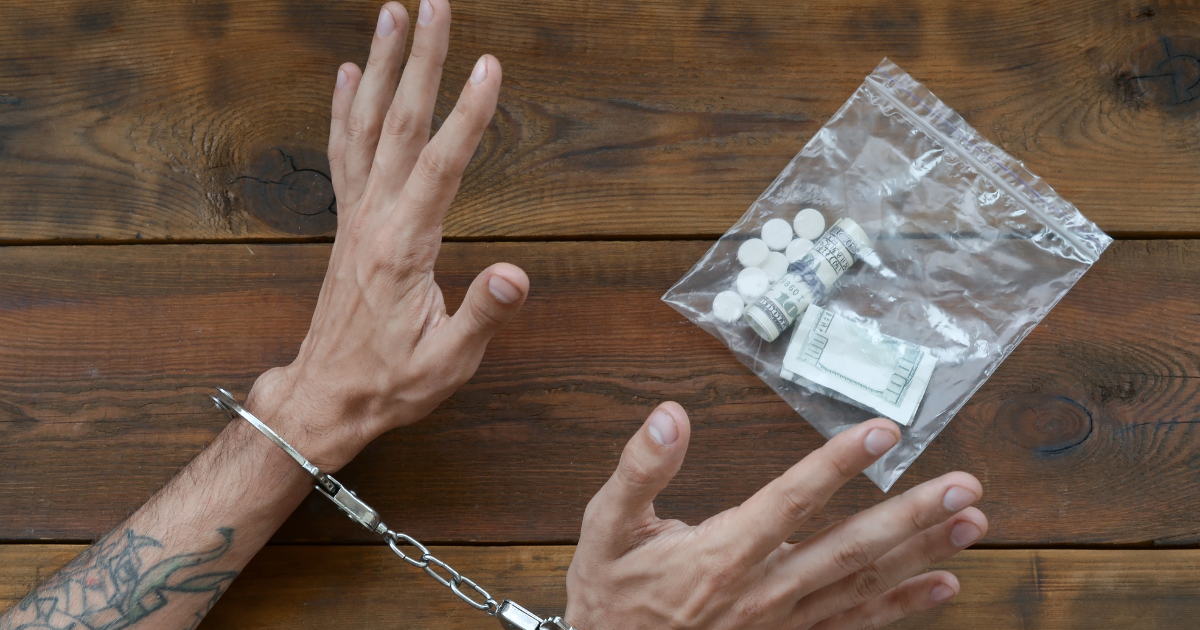Codeine is a commonly prescribed medication in the United States, typically used to treat mild to moderate pain. Yet codeine use can quickly develop into an addiction and have severe consequences for the person struggling to control their use. Thankfully, codeine addiction treatment is highly effective and can help people achieve lasting recovery.
Understanding Codeine Addiction
Codeine is a commonly misused substance. When used as a recreational drug, it often goes by the street names:
- Lean
- Sizzurp
- Purple drank
Typically, this refers to codeine combined with promethazine — a cocktail used to treat the common cold. Yet codeine is an opioid, similar to drugs such as OxyContin or heroin, and recreational use can quickly develop into an addiction.
Like other opioids, codeine has several sedating effects. When codeine is ingested, people can experience effects such as:
- Euphoria
- Relaxation
- Drowsiness
- Pain relief
Yet these pleasurable effects come at a cost. When people begin to use codeine regularly, they can become physically and psychologically dependent upon the substance and experience a host of debilitating withdrawal symptoms if their codeine use suddenly stops.
Signs and Symptoms of Codeine Addiction
The signs of codeine addiction run parallel to the symptoms of other opioid use disorders. People who develop a codeine addiction may experience effects such as:
- Loss of interest in hobbies or activities that used to be important to them
- Invasive drug cravings for codeine
- Growing tolerance to codeine, meaning more needs to be taken to achieve the desired effect
- Difficulties at work, school, or home due to codeine use
- Codeine withdrawal symptoms if they suddenly stop using
- Multiple failed attempts to cut down or stop codeine use on their own
In addition, people who misuse codeine can experience changes in appetite, have disrupted sleep patterns, and have sudden or unexpected weight loss. Many people will attempt to hide the symptoms of addiction from those they care about most or begin to isolate themselves from others.
Codeine withdrawal symptoms can be particularly severe. In many cases, people who try to stop codeine use on their own are overwhelmed by the intensity of withdrawal, leading to them returning to codeine use rather than continuing to suffer the ill effects of withdrawal.
Impact of Codeine Addiction on Health and Relationships
The long-term effects of codeine addiction on an individual’s health can be a significant cause for concern. Since codeine is so commonly combined with other medications, such as acetaminophen or promethazine, long-term codeine addiction can put people’s bodies under incredible strain.
Some of the most common health issues among people who have been addicted to codeine for long periods of time include:
- Liver damage
- Depression1
- Impaired kidney function
- Constipation and GI issues
These effects are in addition to the host of adverse effects that substance use disorders can bring on their own. People who develop an addiction can often experience significant impairment in their everyday life, from an inability to hold a job to spending inordinate amounts of time using, seeking out, or recovering from codeine.
But perhaps the most troubling aspect of codeine addiction is how it can affect the people around you. While many people amid a substance use disorder believe they are only harming themselves, addiction can affect friends, loved ones, family members, and entire communities.
Put plainly, an addiction to codeine becomes a priority above everything else in an individual’s life. Maintaining their marriage or relationship becomes less important than seeking the next high.
The concerns of family members can get brushed to the side as people continue to seek out codeine. And when people attempt to intervene when they see their loved one suffering from addiction, the person with a substance use disorder can lash out with anger or resentment.
Codeine Addiction Treatment
Thankfully, codeine addiction is not a life sentence. Evidence-based codeine addiction treatment can help people put down their addiction for good, overcome codeine withdrawal symptoms that can hold them back, and start the process of rebuilding a healthy and successful life in recovery.
At Wolf Creek Recovery, our comprehensive codeine addiction treatment program uses several different treatments and therapeutic modalities to help people get back on track, break free from addiction, and repair the relationships that have become damaged in the process. This includes treatments such as:
- Medical Detox: Can alleviate the worst codeine withdrawal symptoms
- Cognitive-Behavioral Therapy: Teaches people how to challenge the automatic thoughts that lead to addictive behaviors
- Family Therapy: Can help heal the relationships harmed by addiction
- Dual-Diagnosis and Codeine Addiction Treatment: Treats mental health disorders and substance use disorders simultaneously
- Relapse Prevention Programs: Provide people with tools and skills to resist future relapse and stay strong in their recovery
To get started with an evidence-based treatment program, contact our team by filling out our confidential online contact form or calling us today.
Seeking Codeine Addiction Treatment
A support network is essential in recovery. Turning to trusted healthcare professionals, treatment centers, or addiction helplines can get you on the right path. You can recover with evidence-based addiction treatment methods offered at Wolf Creek Recovery. Don’t delay seeking treatment any longer. Reach out to our team and start your codeine addiction recovery journey today.
Sources:
[1] https://pubmed.ncbi.nlm.nih.gov/10440467/
Finding purpose in pain is what Jonathon does best. He is a strong advocate for those suffering from substance use disorders. As a person in recovery, Jonathon knows how important it is to receive empathy and compassion. He recognizes that each person comes from a different set of circumstances and deserves to be valued and respected.
With a fresh perspective and compassionate attitude, Jonathon works closely with clients to help them let go of the past and know when to take necessary risks. The recovery process is ongoing, which means people need to move forward while applying the skills learned in treatment. Jonathon is a great motivator when it comes time for this!
Jonathon also places emphasis on the family unit and how it can make or break the recovery experience. Individuals with active, supportive families have far better outcomes. Jonathon realizes that it’s impossible to move mountains overnight, but with the right support team and positive attitude, anything is possible.












